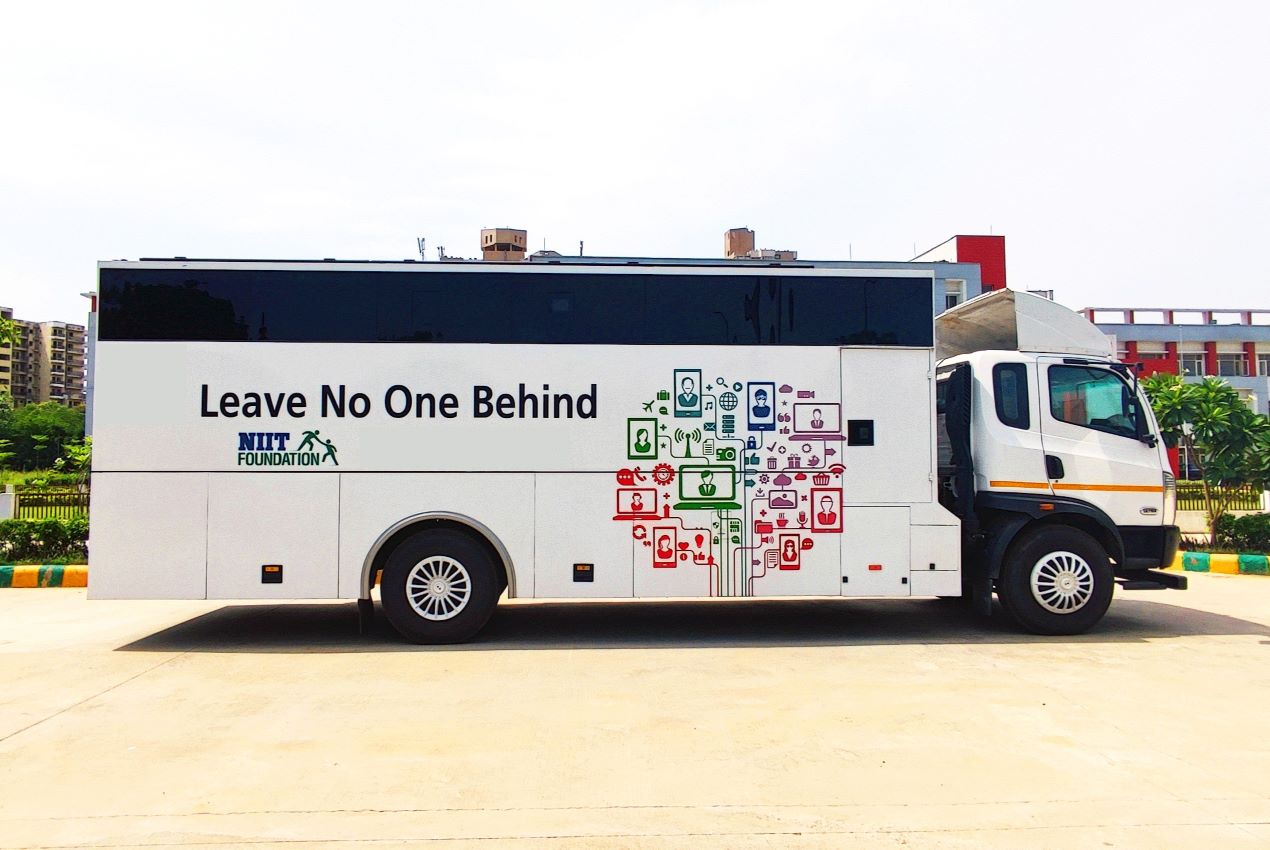New Delhi, Jan 17, 2025: NIIT Foundation's Digital Bus Initiative bridges the digital divide across India's remote and underserved regions. Currently operating with 16 Digital Buses in 8 states, the initiative is expanding its footprint, with plans to deploy three additional buses. Designed to make technology accessible in isolated areas, the program addresses critical digital education and skills training gaps.
Each bus is a mobile digital classroom with solar power, broadband connectivity, computing devices, video conferencing tools, and printers. A team of four people goes with each vehicle to do hands-on training. The training emphasizes disseminating digital literacy, financial literacy, cyber security, information technology skills, and entrepreneurship knowledge among various demographics, ranging from children to youth to women and elderly persons.
In last 8 years, the project has brought many success stories to realize the milestones, including having served more than 45 villages and more than 50,000 people who have benefitted from the project which also includes 50% of women participation. It also connects learners to schemes and program opportunities relating to government, thereby providing broader community rewards. The buses are plying in eight states/UTs: Chhattisgarh, Haryana, Jharkhand, Uttar Pradesh, Maharashtra, Delhi, Uttarakhand, and Madhya Pradesh. The effort has been highly effective in areas where training and skill development infrastructure is underdeveloped. There are 6 more Digital Buses are ready to start its operations in 5 new states and to reach out to the far-flung areas of the selected locations.
Charu Kapoor, Country Director of NIIT Foundation, said, "By creating a classroom on the wheels, the sound of engines can be seen powering the flame of learning. Digital buses are changing the educational landscape in remote areas, transforming remote areas into lively learning centres and offering unprecedented societal connectivity. To cross the barriers and provide resources wherever they are needed directly, we're not only making the communities empowered, but we're also serving the future of the world around us better all at the same time."
Isha Joshi from Kaladhungi village in Uttarakhand highlighted the program's impact, "I never imagined how much a free computer course could transform my life. All of a sudden, after my accident, I thought that my dreams were gone, but this programme has given me a new life. Not only did it provide me with fundamental computer abilities, but it also restored my assertiveness. I went from being teased for not knowing computers to becoming the class CR and helping my peers with their projects. This program has empowered me to stand tall and repay my family's sacrifices for my Education.”
The program's primary purpose is to lower the digital divide by normalizing technology for daily living and deepening community learning. It promotes teamwork and social acumen and empowers rural youth to view technology as a personal and career development method. The program allows marginalized communities to engage in the digital economy on an equal footing.
Working on the ground to deliver Education, Karan Mehta at Digital Bus said, "Education is often more than simply teaching fundamental computer literacy because as a trainer aboard the Digital Bus, my task is to help people see themselves in empowering ways. We go to the underserved villages, set up mobile learning facilities, and ensure everyone is cared for, no matter where they start. Seeing them discover how to make an email, delve into digital tools or use the internet for the first time is very rewarding. It’s not just skills we’re imparting; we’re fostering confidence, independence, and a sense of possibility that transforms lives and uplifts entire communities."




















.jpg)



